Strategizing from 7 cities across the globe
Completed Research Initiatives


Cyber Defense in Hybrid Conflict: A Technical, Economic, and Political Dive
This report provides a comprehensive analysis of the evolution of modern conflict into the paradigm of hybrid warfare, where traditional boundaries between war and peace have dissolved into a digital "grey zone". It establishes that cybersecurity has shifted from a technical IT concern to a top-tier existential strategic imperative for national defense and global stability. The study examines the mechanisms of this shift across three critical dimensions: technical execution, economic impact, and the resulting legal and political quagmires.
15/02/2026

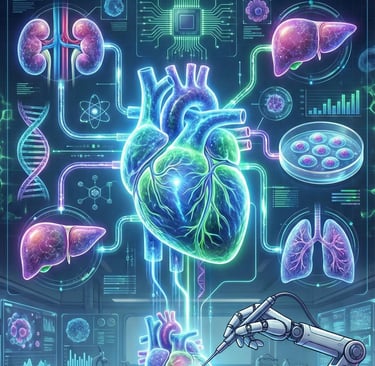
How are we Fighting the Global Shortage of Organs for Donation?
Aya Kanaan
An organ transplantation involves transferring a healthy organ, such as a heart or liver, from a donor to a patient with a damaged or failing organ, allowing recipients to live longer and healthier lives. However, the demand for transplantable organs far exceeds supply, resulting in a severe global organ shortage that limits doctors’ ability to meet patients’ needs. This shortage is driven by multiple factors, including low rates of post-mortem organ donation due to lack of awareness or societal and cultural hesitation. To address this crisis, scientific advances in organ procurement, preservation, bioengineering, xenotransplantation, and increased public awareness are being explored. Although significant challenges remain, continued research and collaboration across disciplines offer hope for reducing organ scarcity and improving outcomes for patients in need of life-saving transplants.
First written on 11/07/2023
Revised and Published on 14/12/2025
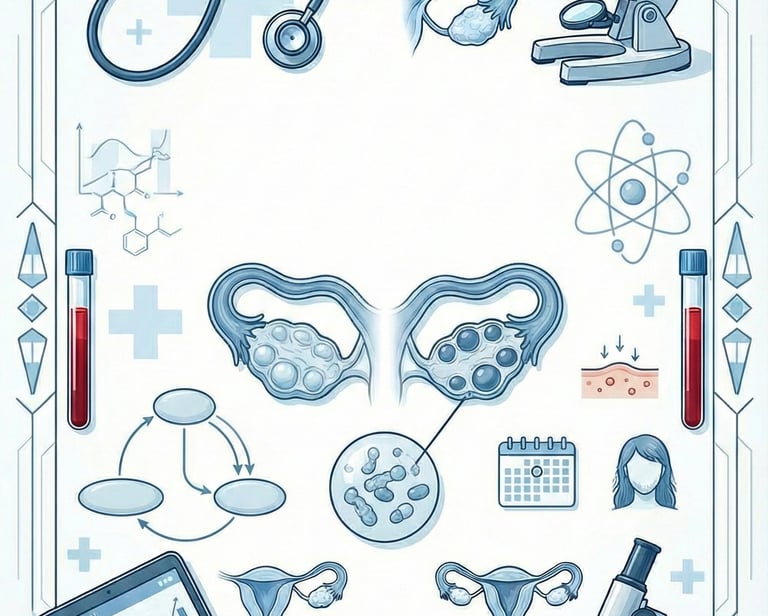

Healing beyond prescription: Managing PCOS Through Sustainable lifestyle changes
Maria Kachi
The challenges posed by PCOS extend far beyond its pervasiveness. Misinformation, medical oversight, wrong diagnoses, and the lack of fixed solutions shroud this disorder. The symptoms are diverse, not limited solely to reproductive health, but extending to metabolic reactions, mental health, and future disease risks. In fact, women with PCOS tend to be at a greater risk of anxiety and body dysmorphia than those without the disorder (Cooney et al., 2017). This unpredictable nature of PCOS highlights the pressing need for a more holistic approach to PCOS management, one that acknowledges both the physical and psychological aspects of the disorder.
14/12/2025


Impact of Pop Culture on Public Perception towards Governance and Democracy
Marina Daniel
This study focuses on the role of pop culture in shaping public perception, attitudes, and choices. It specifically investigates two political movies: The Apprentice and the Bibi Files and how they have been widely confronted by elites to limit their influence and distribution, and the impact they have had on their viewers.
13/12/2025


how did the lebanese financial system crash? a central bank sponsored ponzi scheme
Fahd Chehabeddine
While the government was amassing an ever-increasing debt load, the central bank was combatting decreasing foreign currency flows due to a negative current account balance by raising the interest rate. It could not continue this remedy further as it would prematurely bankrupt the government. Instead, it pursued unconventional monetary policy means, which did bring more foreign currency that the banking sector had abroad into Lebanon and the central bank in the short run. However, the means in which the central bank attracted these inflows was unsustainable and resembled a traditional ponzi scheme where new inflows covered for losses that accumulated over time, eventually bankrupting the central bank.
06/11/2025
The HealthCare Review
"A Premedical Journey, One Step at a Time"
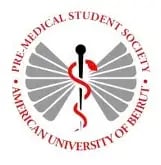

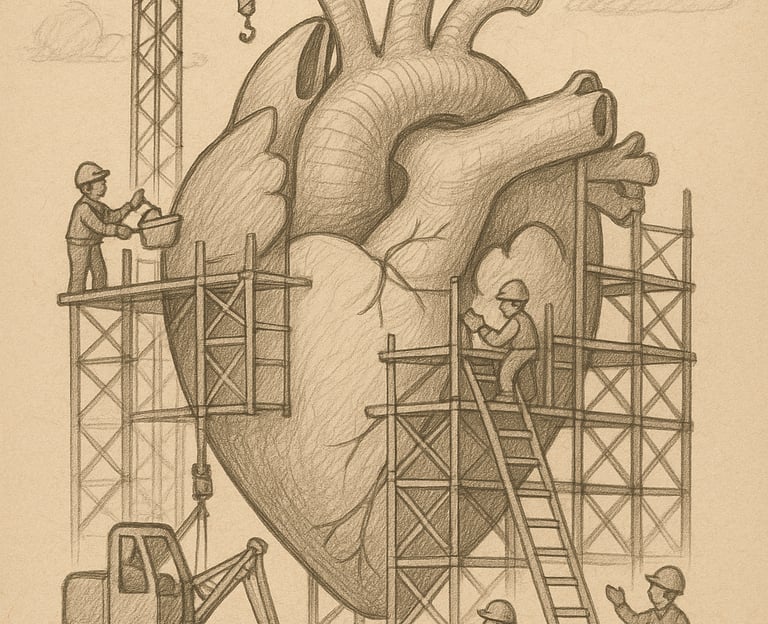

Human-Grown heart valves: A promising breakthrough to the treatment of valvular heart diseases
Anabelle Rizkallah
Current surgical treatments involve replacing the defective valve with a mechanical or biological valve, often requiring multiple subsequent surgeries in children, as these valves aren’t capable of growing on their own. Today, the field of medicine stands on the brink of a transformative breakthrough, as researchers are making heart valves from human stem cells. These human-grown heart valves could potentially spare children from additional surgeries, completely redefining the treatment of valvular disease.
07/07/2025
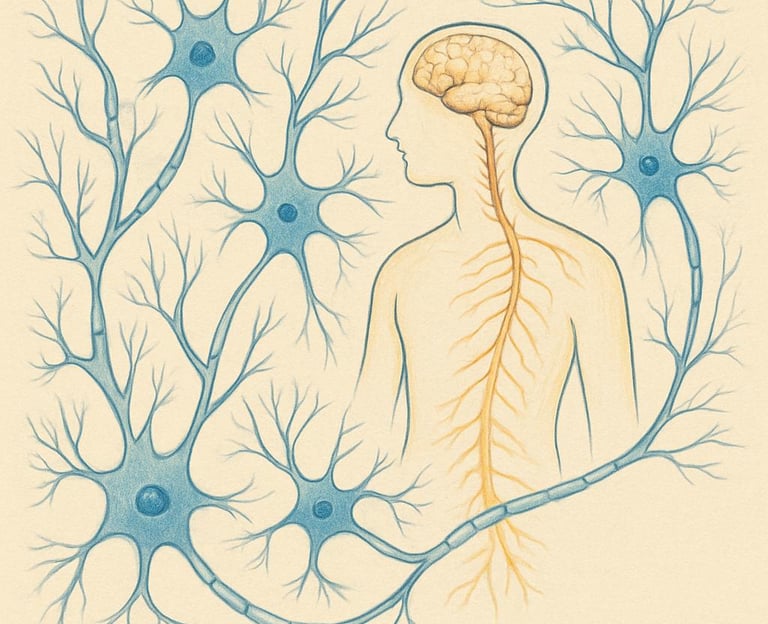

The Subconscious-Autonomic Nervous System Axis: A Novel Perspective on Neurodegenerative Disease Progression
Gaelle Hankash
Neurodegenerative diseases such as Alzheimer’s and Parkinson’s have traditionally been studied through a biomedical lens, emphasizing genetic and molecular mechanisms. However, emerging interdisciplinary evidence demonstrates that subconscious processes, shaped by past experiences, play a crucial role in disease progression. This paper investigates the intricate, often overlooked interplay between the subconscious mind and neurodegeneration. We propose that subconscious biases and maladaptive patterns profoundly impact the autonomic nervous system (ANS) and its regulation of neuroinflammatory pathways.
19/07/2025
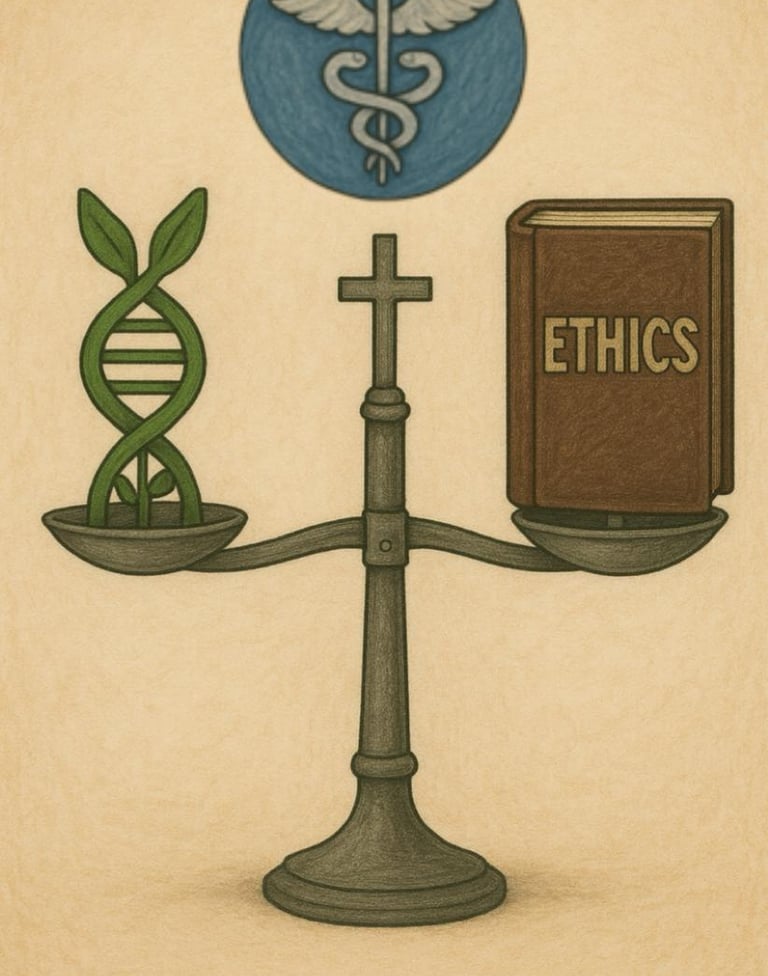

Biotechnologies: A Breakthrough for Medicine or the Beginning of Humanity’s Downfall?
Marco Lamah, Karl Mchayleh
As of 2025, biotechnologies have reached a new zenith by standing at the intersection of a myriad of scientific disciplines, including genetic engineering, artificial intelligence, synthetic biology, and regenerative medicine. Through this multidisciplinarity, this modus operandi is redefining the possibilities of healthcare, not only by advancing treatments for chronic diseases but also by addressing organ shortages and accelerating drug discovery. Nevertheless, this exponential pace of innovation is raising various ethical, social, and policy debates regarding the challenges of biotechnologies that presuppose careful consideration. This article delves into both the scientific foundations and the practical applications of emerging biotechnologies, drawing from primary research and real-world case studies. It will also analyze the pressing need for equitable access, responsible governance, and thoughtful policy development to ensure that biotechnological progress benefits society as a whole.
04/08/2025
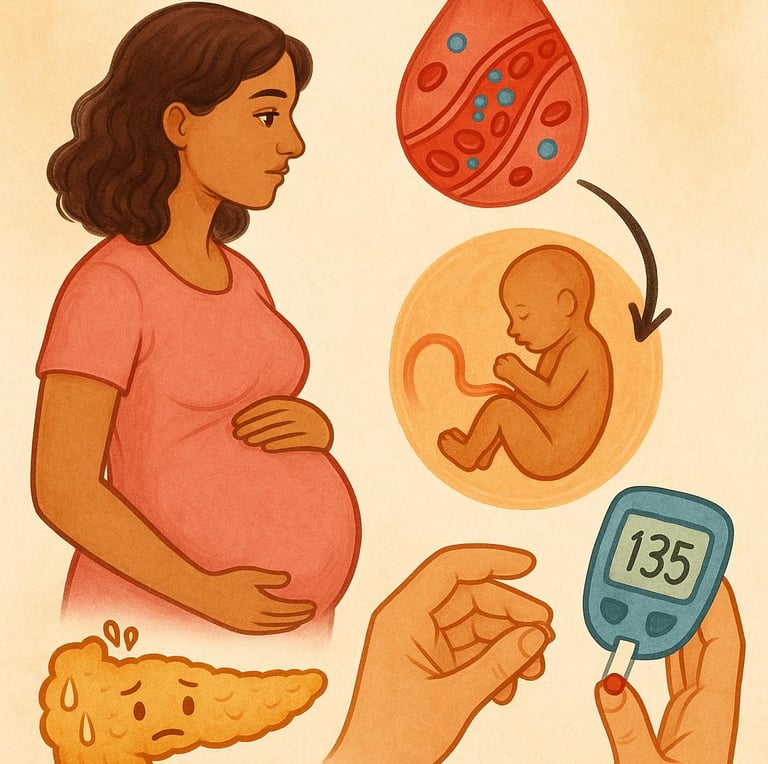

Gestational Diabetes in Pregnancy: Understanding the Risks and Promoting Effective Management
Toros Torossian, Hala Ramadan
From a historical standpoint, the past two decades have witnessed the rise in GDM, affecting 14% of all pregnancies worldwide [4]. Notably, the Middle East and North Africa (MENA) region has the highest prevalence, with 27.6% of pregnancies affected by GDM [4]. Despite this growing prevalence, many women remain unaware of the risks associated with GDM [5]. Unlike PGDM, which is diagnosed before pregnancy and requires prior management, GDM develops during pregnancy, with its incidence increasing throughout gestation, reaching 26% in the second trimester and 33% in the third trimester [6]. Given its rising prevalence and the lack of awareness surrounding it, this review will primarily focus on GDM.
05/08/2025
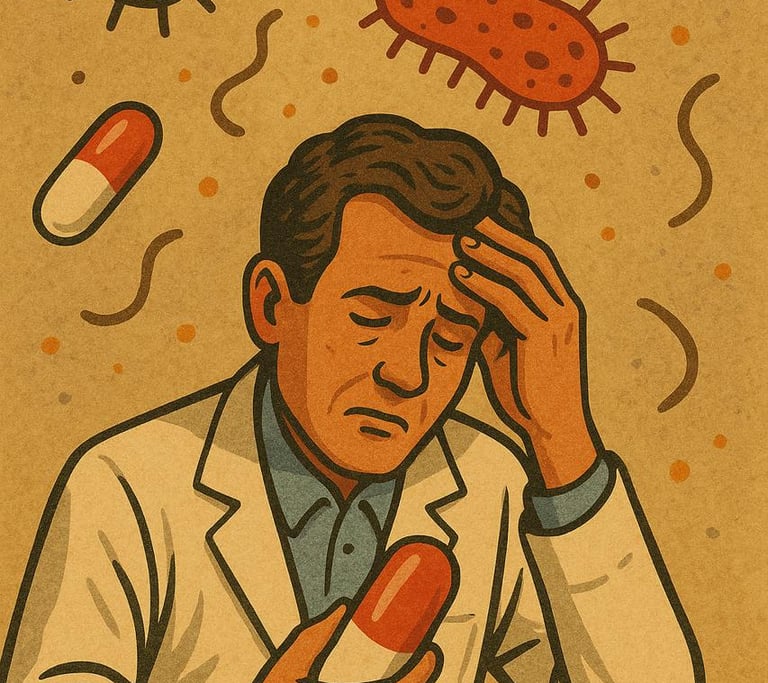

Gestational Diabetes in Pregnancy: Understanding the Risks and Promoting Effective Management
Naji Mansour
Amongst a myriad of remarkable, modern medical advances, antibiotics stand out as a significant development. Thanks to antibiotics, thousands of lives have been preserved, transforming deadly infections into manageable medical situations. Through his 1928 breakthrough of penicillin, Alexander Fleming launched a medical revolution that allowed for life-saving operations, cancer treatments, and organ transplants to take place more regularly. The medical breakthroughs from antibiotics are encountering a critical threat because of antibiotic resistance.
17/08/2025
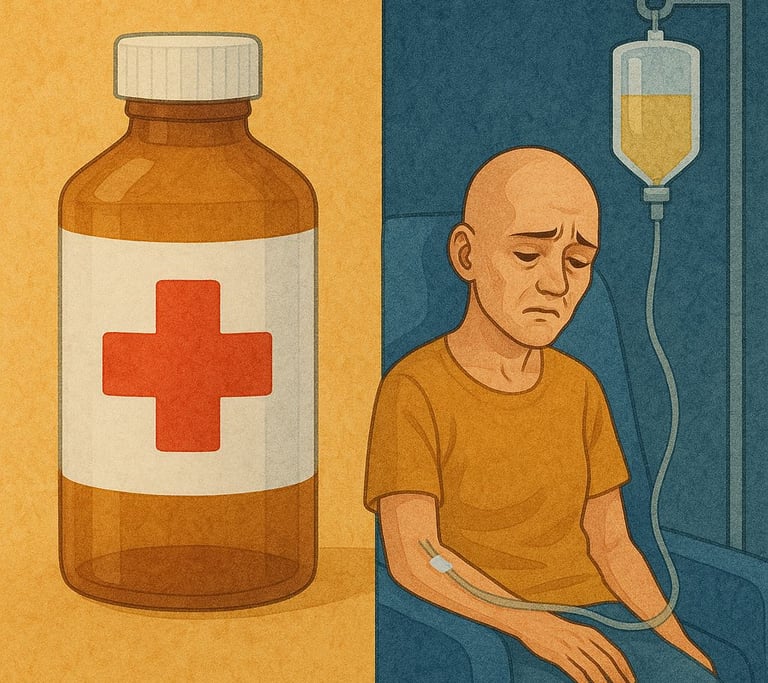

Chemotherapy: A medical advancement or a moral setback?
Elie Jesus Hobeika, Thalia Hassoun
Chemotherapy is a treatment used to target cancerous cells in the body by damaging cancer cell DNA, inhibiting mitosis, and disrupting cellular metabolism (NCI Drug Dictionary, n.d.). Although chemotherapy is a strong tool to shrink tumors and slow down the progression of cancer, it is not a precise treatment. Instead of solely targeting cancerous cells, it can also affect normal, fast-growing cells including bone marrow cells, gastrointestinal lining cells, and hair follicle cells.
01/09/2025
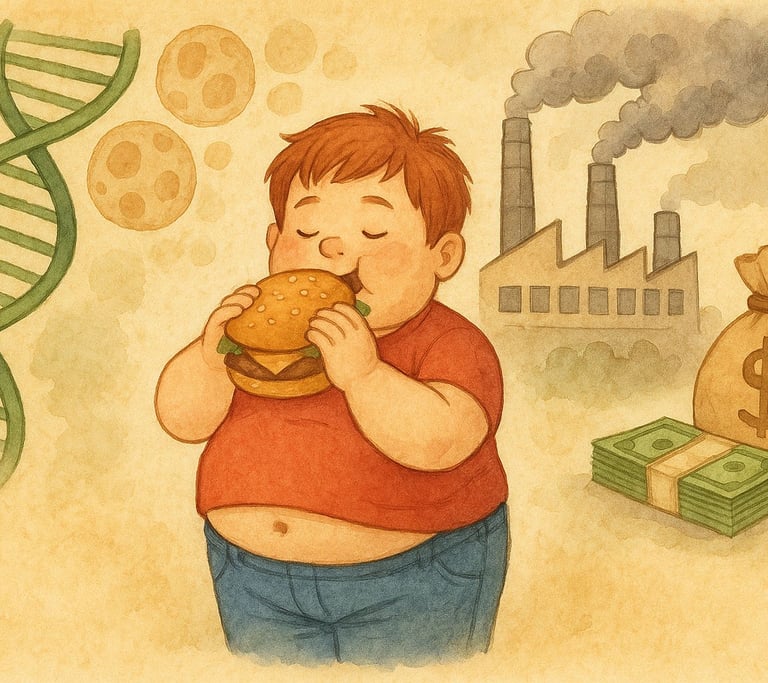

a silent epidemic: The Hidden triggers of childhood obesity
Chloé Batrouni, Maribelle Btaich
Long dismissed as a matter of poor diet and lack of exercise, childhood obesity has emerged as one of the most pressing and intricate health challenges of our era. Contrary to many societal expectations, infantile obesity is not solely caused by dietary inadequacy and physical inactivity. This paper aims to discover its hidden and lesser-known causes, including but not limited to biological, social, and psychological factors that intensify the risk of obesity. Genetic predispositions, epigenetics, microbiome imbalances, obesogens, chronic stress, and hyper-palatable food addiction are thoroughly explored in this paper, and more specifically their link to obesity.
01/09/2025
Ongoing Research Initiatives
Brain Economics: The Economic Value of a Flourishing mind
Mental health disorders are not abstract concepts but have tangible, measurable impacts on economic output through absenteeism (missing work) and presenteeism (being present but underperforming). Conditions such as chronic stress, depression, anxiety, ADHD, and sleep disorders impair concentration, decision-making, and effectiveness, costing economies billions annually. Addressing these psychiatric variables is an economic necessity, requiring mental health resources, promoting work-life balance, and reducing stigma
19/05/2025
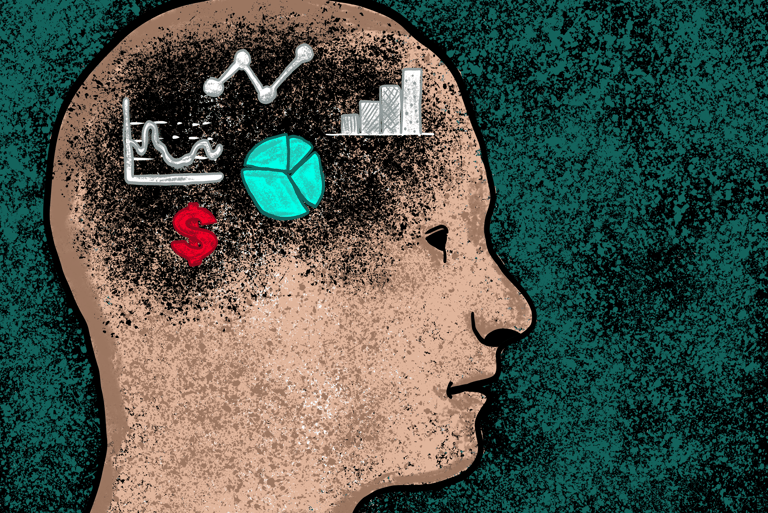

Completed Research Initiatives


Unrecognized and Unprotected: Climate Refugees and International Legal Gaps
Michela Salama-Robino
Microplastics have been implicated in a range of adverse health effects on humans, including neurotoxicity, reproductive and development problems, and chronic diseases. Microplastics can accumulate in neural tissues, ultimately resulting in cognitive malfunctions and neurodegenerative disorders. Additionally, microplastic exposure has been associated with disruptions in hormone regulation and adverse effects on fertility and fetal development (Liu et al., 2019). They can also lead to chronic diseases such as cardiovascular diseases, metabolic disorders, and cancer. These health effects urge for the expansion of research on the topic.
13/08/2025


The Impacts of an Invisible Hazard: Microplastics in Beauty and Fashion (In collaboration with the FHS Student society of AUB)
Jana Abou Jaoude, Amira Hijazi, Mariam Hoyek, Perla Mahfouz, Rosa Kalout
Microplastics have been implicated in a range of adverse health effects on humans, including neurotoxicity, reproductive and development problems, and chronic diseases. Microplastics can accumulate in neural tissues, ultimately resulting in cognitive malfunctions and neurodegenerative disorders. Additionally, microplastic exposure has been associated with disruptions in hormone regulation and adverse effects on fertility and fetal development (Liu et al., 2019). They can also lead to chronic diseases such as cardiovascular diseases, metabolic disorders, and cancer. These health effects urge for the expansion of research on the topic.
26/01/2025


Behind Beirut's Thalassocracy: A study of the systematic corruption within the Beirut port
Elie Joe Akiki, Lynn Farghal
The Lebanese curriculum of Geography highlights the Beirut port as the strongest maritime administration in the east mediterranean coast. While this claim may have been true at some point in history, the new world order shifted the situation around, as the harbor found itself in ruins after facing the consequences of its deep-rooted corruption. The Lebanese golden age witnessed an inexplicable economic boom in its absolute free market, which historians later described as “Le miracle Libanais”. However, this economic boom was nothing but the short run benefits of institutionalized corruption within the state’s administration and beyond.
17/01/2025


INTEGRATION OF COMPRESSED AIR ENERGY STORAGE WITH SOLAR PV SYSTEM AT M.K MEDICAL CENTER
Energy storage systems are increasingly recognized for their efficiency and practicality in supporting renewable energy integration. This project focuses on implementing a Compressed Air Energy Storage (CAES) system at the Mohamad Khaled Medical Center in Beirut, Lebanon. The medical center currently relies on 367 solar PV panels for daytime electricity and a diesel generator for nighttime power.
10/12/2024


Globalization: Fostering or Impeding Religious freedoms?
Marina Daniel
Globalization has competed with the nation-state over a large degree of its sovereignty. This is specifically due to the rise of international non-governmental organizations and bodies that have been able to socialize states and adopt enforcement mechanisms in order to ensure compliance. In contrast with the several connotations and linkages commonly made with the rise of globalization, the human rights status was highly hindered, with an explicit infringement on the right to freedom of thought, conscience, and religion, which are precisely highlighted in the Human Rights Act of 1998.
12/01/2025
